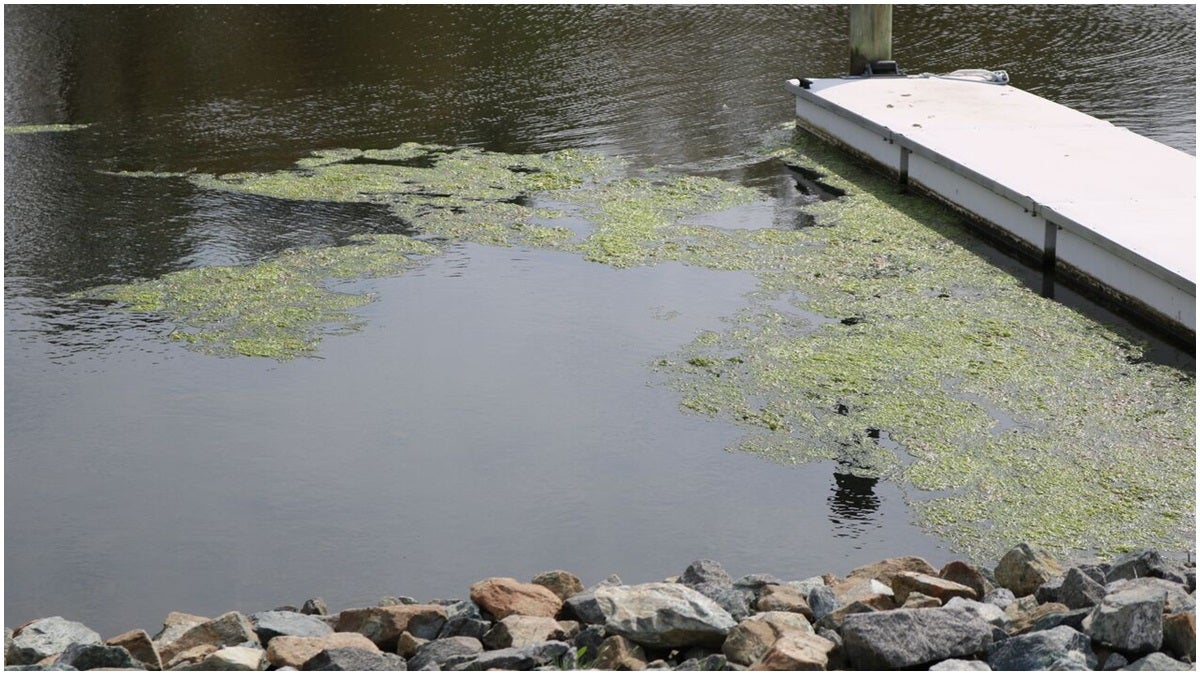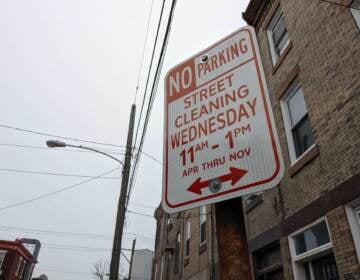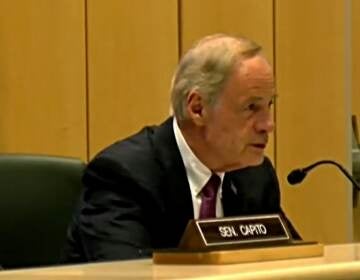Clean water tax proposal in Delaware
Listen
Love Creek Marina, Lewes. (photo courtesy of Mat Marshall)
Even with the support and the technology to clean the state’s very polluted waterways, Delaware just doesn’t have the money.
This legislative session, all Delawareans will be asked to chip in to help fund clean water initiatives, according to recommendations made by the state’s Clean Water Task Force.
State Senator Bryan Townsend and state Rep. Michael Mulrooney chaired the task force. It was created two years ago and charged with identifying and recommending ways to improve water quality and reduce flooding in the state. Representatives from environmental and recreational groups, the agricultural community and businesses were among the task force’s members.
“Our water is not in good position, not good quality. There’s flooding in many, many places in Delaware and we have not been funding water programs the way we should from the federal and state levels. So we have a big issue,” said Townsend, D-Newark-Bear.
Townsend said Delaware needs $100 million to address the nonpoint source pollution impairing the waterways, but falls short every year.
Nonpoint source pollution comes from things like not picking up after your dog. Rainwater will carry that pollution which flows into the water. The nutrients then encourage the type of growth that negatively impacts the overall health of the water. In Delaware’s case, more than 90 percent of the state’s waterways are considered impaired.
“Lums Pond in the south Newark area, you can’t really swim there anymore. They do triathalons, but a lot of people get sick afterwards,” Townsend said. “Down in the coastal area in Delaware, there’s beautiful scenery, beautiful area, Inland Bays gorgeous … it looks beautiful, but there are real water challenges at the surface and beneath the surface.”
Last summer during the height of beach season, a roughly two-block stretch of Rehoboth Beach was closed due to high bacteria levels. If nothing is done, Townsend worries about future closures and how that will impact the state’s $3.1 billion tourism industry.
“I think people are getting this idea that we’ve got to go ahead and clean up our waterways, especially in a coastal state, an ag state, a tourism state with sea level rise being a real challenge. The longer we wait, the worse it’ll get,” Townsend lamented. “Flooding is another issue in the task force too, and I get a lot of phone calls from constituents who want their flooding issues addressed. We just don’t have the money that we need to address all these things. And I tell people that. I’m not shy about telling them, ‘I can’t help you right now, we don’t have the money for it.'”
Clean water fee
The task force in its final report has recommended a broad-based fee levied on all Delawareans to fund clean water initiatives in the form of a surcharge on personal income taxes and an increase in business license fees. Townsend said this methodology differs from former Governor Jack Markell’s clean water proposal in 2014, which fell flat. Townsend said Markell’s proposal amounted to a statewide property tax where large landowners, like farmers, would be hit the hardest.
“This is much more of a combination of individual households, up to no more than about $70 to $80 per year, per household and only if you basically are owing income tax. If you’re in the lower income scale and don’t owe income tax then you’re not going to be paying in. That’s the way we tried to balance it that way. Small businesses would pay about $125 to $150 a year and big businesses would pay about $500 a year,” said Townsend, who estimated the taxes, if passed, would cover about $20 million annually. Leverage that with federal matching funds, the state could see upwards of $60 million available for clean up.
“This proposal is not to meet the $100 million a year mark. I would love to, unfortunately I don’t think there’s a political will to do that and there might not even be the political will to do the $20 million a year, but we’ve got to do this for our economy, for our ag sector, for our public health, for our environment, for our tourism — this is so critical in Delaware,” Townsend said. The recommendations call for the money to be put into a lockbox fund that can only be used for water quality projects.
While there has been news coverage about the state’s water woes in the past, particularly after Markell first introduced his clean water initiative in 2014, Townsend doesn’t think people fully understand how bad the water actually is.
Last Thursday, the Newark senator embarked on a statewide tour publicizing the task force’s recommendations in hopes of gaining support from all three counties. He visited with farmers downstate and craft brewers with Dogfish Head in Milton. His tour ended at the Wilmington Riverfront.
A clean water rally is scheduled to take place on June 6 at Legislative Hall in Dover. It’s believed that related legislation will be introduced around the same time.
The task force suggesting the tax was nonpartisan, but the proposal comes after Governor John Carney already included tax hikes and spending cuts in his proposed budget. That will make increasing another tax more difficult.
WHYY is your source for fact-based, in-depth journalism and information. As a nonprofit organization, we rely on financial support from readers like you. Please give today.





